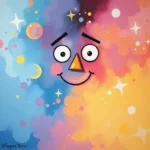
Have you ever woken up feeling like the star of an elaborate play, caught in the throes of an unpredictable performance? Dreams can often feel like an intricate theater of the mind, where our deepest fears, desires, and unresolved issues take center stage. The characters we encounter and the plots we navigate serve as powerful reflections of our inner world, revealing what we might not fully understand while awake. Just like a captivating performance, these dreams offer a unique opportunity to explore our unconscious, providing insight into our emotional landscape.
In this article, we’ll journey through the fascinating realm of dream symbolism, experience analysis, and personal growth to help you better understand the messages hidden within your dreams. Whether you’re a seasoned dreamer or new to the world of dream interpretation, there’s something here for everyone. So grab a cup of tea, relax, and let’s dive into the magic of dreams.
Behind the Curtain: Symbolism of the Stage
Every element of a dream is a symbol—a vessel carrying meanings that can resonate deeply with our waking life. When we consider the stage as a central symbol in our dreams, it represents the theater of our minds, where our emotions play out in various forms. The characters that populate this stage often embody different aspects of ourselves or people in our lives. Understanding these symbols can lead to profound insights.
-
The Stage: A stage in a dream symbolizes your personal life and the roles you play. Are you feeling like an actor performing on cue, or do you feel out of place? This can reflect how you perceive your life situations—whether you feel like you are in control or merely going through the motions.
-
The Audience: The presence of an audience can indicate feelings of exposure or vulnerability. If you dream of performing in front of a large crowd, it might suggest that you are grappling with feelings of judgment or a desire for recognition. Alternatively, a supportive audience can signify a longing for acceptance and validation.
-
Props and Costumes: Props can represent the tools or resources you have at your disposal in life, while costumes symbolize the identities you adopt. Dreaming of wearing an elaborate costume may suggest a desire to express yourself or explore different facets of your personality.
-
The Director: The director in your dream could symbolize your inner guidance or conscience. Are you following your intuition, or do you feel like you are being pushed into actions? This can reflect your need for direction in life.
-
The Script: A script symbolizes the expectations you hold for yourself or that others impose upon you. If you find yourself struggling with lines, it may indicate that you’re feeling pressure to conform or perform according to someone else’s narrative.
By exploring these symbols, you can uncover the underlying messages in your dreams, gaining clarity on your emotions and experiences.
Act One: The Performance of Experience
Now that we’ve explored the symbolism, let’s delve into specific dream scenarios that can illuminate the complexities of our inner performances. Each experience can hold a mirror to our waking lives, revealing our fears, dreams, and aspirations.
-
Forgotten Lines: Imagine you are on stage during a crucial performance, but suddenly, you can’t remember your lines. This dream often signifies a fear of failure or being unprepared in waking life. It may indicate that you feel overwhelmed by expectations—whether they come from yourself or others.
-
An Unexpected Audience: Picture yourself rehearsing for a performance when you unexpectedly discover a large audience. This scenario can reflect feelings of vulnerability or anxiety about revealing your true self. It may be a call to embrace authenticity and confront your fear of judgment.
-
Standing Ovation: Dreaming of receiving a standing ovation after a performance can be a powerful affirmation of your self-worth. It represents a desire for recognition and validation in your waking life. However, it might also prompt you to consider whether you are relying too much on external approval for your self-esteem.
-
Tripping on Stage: If you find yourself tripping or stumbling during a performance, it signifies feelings of insecurity or self-doubt. This dream could suggest that you’re navigating a challenging situation in your life and are worried about making mistakes.
-
Improvisation: In a dream where you’re required to improvise a scene, it may reflect your ability to adapt to new situations. It symbolizes resilience and creativity, suggesting that you are capable of navigating life’s unpredictability with grace.
Each of these scenarios serves as a reminder that our unconscious mind is constantly at work, helping us process our experiences, emotions, and aspirations. By examining the narratives we create in our dreams, we can gain valuable insights into our waking lives.
The Spotlight of Self-Discovery
As we wrap up our exploration of dreams as performances, let’s focus on how these insights can lead to personal growth. Recognizing the messages behind our dreams can serve as a catalyst for positive change and self-improvement. Here are a few ways to harness this knowledge:
-
Embrace Vulnerability: Acknowledge that feeling vulnerable is a natural part of life. Whether you’re performing on stage or navigating daily challenges, allow yourself to express your true emotions. This authenticity can foster deeper connections with others and with yourself.
-
Reframe Fear of Judgment: Instead of fearing judgment, consider how it can motivate you to grow. Use the insights from your dreams to confront the parts of yourself that you may be reluctant to share. Remember, we all have our own struggles, and embracing imperfections can lead to greater resilience.
-
Cultivate Self-Compassion: If you find yourself dreaming of stumbling or forgetting lines, practice self-compassion. Remind yourself that it’s okay to be imperfect and that mistakes can serve as valuable learning experiences. Each stumble is an opportunity to grow and evolve.
-
Set Authentic Goals: Use the symbolism of the stage and the roles you play to evaluate your goals. Ask yourself if they align with your true self or if they have been influenced by external expectations. Set intentions that resonate with your authentic desires, leading to a more fulfilling life.
-
Engage in Reflection: Keep a dream journal to track your dreams and the emotions associated with them. Reflecting on your dreams can reveal patterns and themes, helping you uncover hidden aspects of your psyche. This practice can deepen your understanding of yourself and your life’s journey.
Life is a grand performance, and each dream is an invitation to explore the depths of our unconscious. By understanding the symbolism within our dreams, analyzing our experiences, and embracing personal growth, we can step into the spotlight of our own lives with greater confidence and clarity.
As you navigate the theater of your dreams, remember that every performance is an opportunity for self-discovery. Whether you’re taking center stage or observing from the wings, approach your dreams with curiosity and openness. In doing so, you’ll uncover the profound wisdom that lies within, guiding you toward a more authentic and fulfilling life.
In the end, the most powerful reflection is this: Your dreams are not merely fleeting images; they are the stories of your soul, waiting for you to listen.







